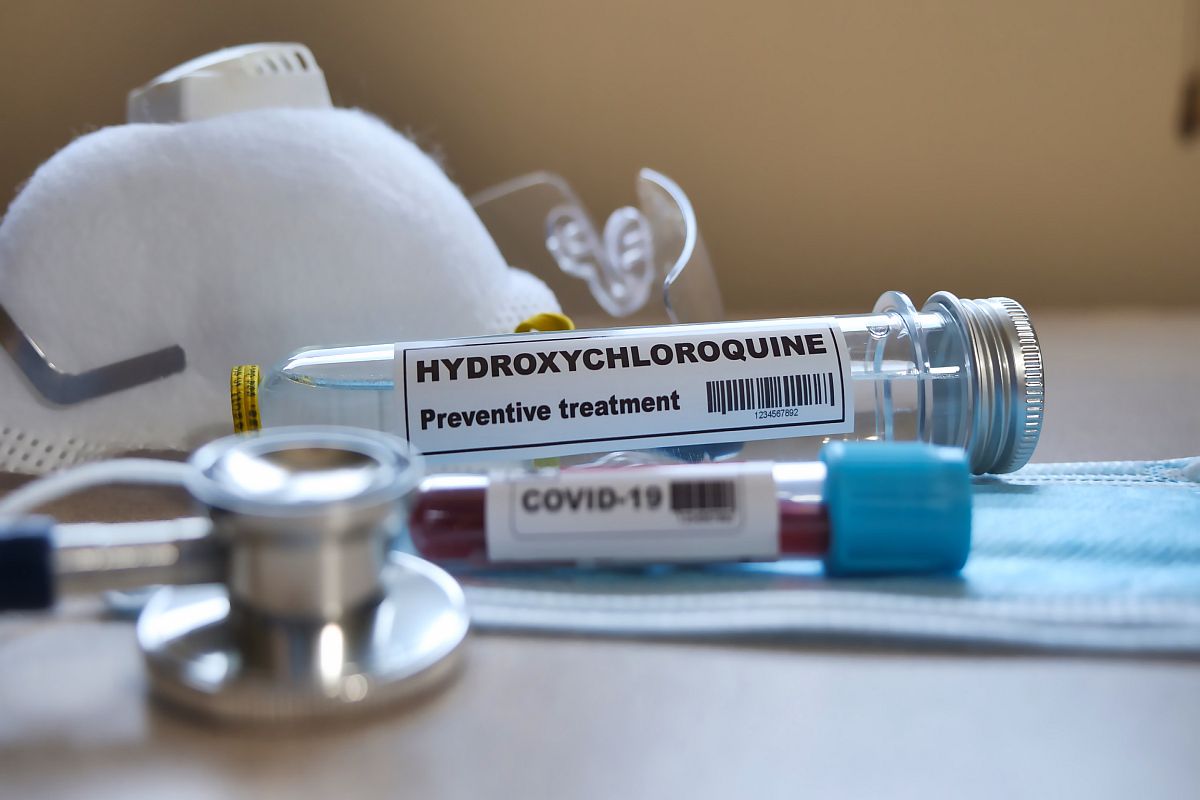Still unexplained
The hunt for the origins of Covid-19 has for the past four years been a tangled web of politics, power struggles, and international finger-pointing.
Even as several countries, including India and the US have seen Hydroxychloroquine as a potential cure for Coronavirus, the WHO has decided to ‘temporarily’ suspend clinical trial of the drug on COVID-19 patients.

The ICMR, in the letter, citied the difference in dosage administered to patients and said that international dosages are four times higher than Indian trials. (Representational Photo: iStock)
The Indian Council of Medical Research (ICMR) has written to the World Health Organization, expressing its disagreement with the global health body’s advisory against the use of anti-malaria Hydroxychloroquine in treating Coronavirus patients.
The ICMR, in the letter, cited the difference in dosage administered to patients and said that international dosages are four times higher than Indian trials.
Even as several countries, including India and the United States have seen Hydroxychloroquine as a potential cure for the Coronavirus infection, the World Health Organization (WHO) has decided to “temporarily” suspend clinical trial of the anti-malaria drug on COVID-19 patients.
Advertisement
WHO Director-General Tedros Adhanom Ghebreyesus said that a clinical trial of Hydroxychloroquine (HCQ) on COVID-19 patients has come to “a temporary pause”, while the safety data of the the anti-malaria drug was being reviewed.
According to the WHO chief, The Lancet medical journal on May 22 had published an observational study on HCQ and chloroquine and its effects on COVID-19 patients that have been hospitalized.
The authors of the study reported that among patients receiving the drug, when used alone or with a macrolide, they estimated a higher mortality rate.
“The Executive Group of the Solidarity Trial, representing 10 of the participating countries, met on Saturday (May 23) and has agreed to review a comprehensive analysis and critical appraisal of all evidence available globally,” Tedros said in a virtual press conference on Monday.
The review will consider data collected so far in the Solidarity Trial and in particular robust randomized available data, to adequately evaluate the potential benefits and harms from this drug, he said.
“The Executive Group has implemented a temporary pause of the HCQ arm within the Solidarity Trial while the safety data is reviewed by the Data Safety Monitoring Board. The other arms of the trial are continuing,” Tedros added.
WHO initiated the Solidarity Trial, a plan to evaluate the safety and efficacy of four drugs and drug combinations against COVID-19 more than two months ago, which includes HCQ.
However, the ICMR on Tuesday said it will continue using Hydroxychloroquine (HCQ) medicine as prophylaxis for COVID-19 disease.
Speaking at a press conference, Dr Balram Bhargava, Director General (DG) of the ICMR, told the media that the Council found the drug very effective and having less side effects for prophylaxis consumption.
Talking about the issue and latest guidelines about HCQ in which its usage was widened, Dr Bhargava said, “COVID-19 is an evolving field. We don’t know which medicines are working and which are not. There are lots of drugs that have been repurposed for use in COVID whether prophylaxis or as treatment. HCQ is a very old anti-malarial drug that was being widely used and it continues to be widely used. It is safer.”
Bhargava said the biological plausibility of HCQ was also supporting that it is possibly an antiviral drug. “We did some invitro study in labs and found that it has antiviral properties. This drug became suddenly popular when the American government also started using it and they got-fast track approval or emergency use authorisation. We also thought that it may be a useful drug for prevention of COVID.”
On Thursday, NITI Aayog member VK Paul said the ICMR had recommended Hydroxychloroquine (HCQ) as prophylaxis with full responsibility, and as per the clinical protocol, the drug might be used for therapeutics also.
The World Health Organisation was not the only platform where the drug was being tried, he said responding to a media query on the government’s stand on use of HCQ.
“It’s not just WHO solidarity test where the HCQ is being tried. Many countries are also doing trials. Its effect in tissue culture is well known and benefits outweigh risks, if any. We with full responsibility have recommended HCQ and given guidelines for its use. We should continue using the drug with precautions prescribed in the guidelines.
“We will also use it in treatment as per the clinical protocol. Have faith. We will also revise the guidelines as we keep getting relevant data,” Paul said.
Ever since the deadly virus spread across nations, Hydroxychloroquine has become one of the most highly demanded drugs worldwide. India, the world’s main supplier of generic drugs, had been finding it difficult to cope with the requests for the drug received from nearly 30 nations inlcuding the United States.
Advertisement